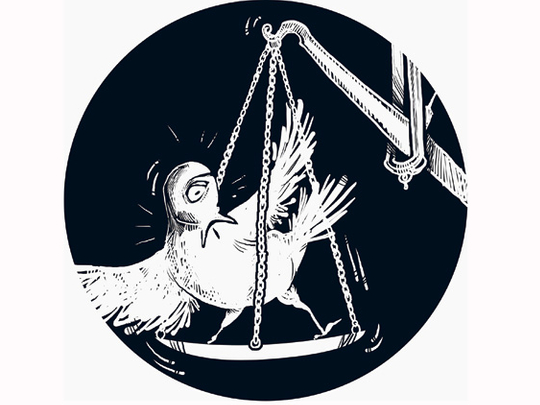
In his seminal book titled the Price of Power, distinguished American journalist Seymour Hersh deconstructed the mythology that had us believe that then US Secretary of State Henry Kissinger was an enlightened genius. Hersh showed Kissinger to be an opportunist who cynically used power and realpolitik to manipulate people and events in the pursuit of self-aggrandisement. In the jargon of international relations Kissinger would be called a realist who operates from the fundamental notion that all international politics is a struggle for power.
US President Barack Obama is not another Henry Kissinger. His domestic and foreign policy agenda brought a much welcomed change from the policies of his predecessor. His rhetorical gifts were used not only to uplift but also to express a sincere belief in a set of ideals, most notably his emphasis on diplomacy, respect for multilateral institutions, and his effort to reach out to the Muslim world in the spirit of mutual respect as outlined in his Cairo speech last year and confirmed in his recent speech at the University of Jakarta, Indonesia.
Moreover, Obama's commitment to peace in the Middle East, and especially to a peaceful resolution of the Israeli-Palestinian conflict, is praiseworthy and virtually without precedent in the history of American foreign policy in the Middle East.
In the jargon of international relations theories, Obama would be described as an idealist who believes in the rule of international law, in multilateral institutions, and in the primacy of diplomacy in international relations. Why then is Obama resorting to bribery to get Israel to desist, however temporarily, from continuing to flagrantly breach international law through its unbridled pursuit of colony construction in the occupied Palestinian territories?
It has been widely reported in the American and Israeli press that President Obama offered Israeli Prime Minister Benjamin Netanyahu an amazing set of "incentives" in return for Israeli government agreement to renew the recently expired moratorium on colony construction for three more months.
These "incentives" are amazing because of their magnitude, their nature, and their implications for the so-called peace process. These ‘incentives' are reported to include sophisticated weapons systems and 20 of the ultra-modern combat jet F-35. They also include additional security guarantees provided by the US.
Astonishingly, these ‘incentives' reportedly also include diplomatic support of the Israeli position at the United Nations, which means American opposition to any Arab or Palestinian move to get the UN to recognise a unilateral Palestinian declaration of independence.
Equally intriguing is the reported commitment by the Obama administration not to seek another moratorium on colony construction in the occupied Palestinian territories. This is a wild bet that the parties would agree on the final borders within 90 days, or else Washington would leave the Palestinians at the mercy of an emboldened and defiantly expansionist Israel — and that may well spell the end of the negotiations.
Ill-timed incentives
The economic aid and the huge military supplies are only surprising in that they come at the beginning of the negotiation process and in return for upholding what is a clear Israeli obligation under the road-map (a ban on all colony construction activities), which is, after all, the agreed basis for the negotiation process. What will Obama offer if and when the parties reach an impasse when they tackle more contentious issues such as the status of occupied Jerusalem, and the right of return?
The diplomatic and political support reportedly promised by Obama represents a repudiation of the role that the United Nations and international law must play in the resolution of the conflict. Furthermore, it bypasses and belittles the role of the other members of the Quartet — Russia, the European Union, and the United Nations. If this were to happen it would jeopardise the very basis on which the so-called peace process is founded, namely international law and various UN Security Council resolutions, particularly 242 which established the principle of land for peace and reiterated the international law principle of the inadmissibility of the acquisition of territories by force.
The road-map, the Quartet, and UN resolutions would be set aside in favour of an approach where the occupier is rewarded to stop his breaches of international law temporarily while pressure is brought to bear on the weaker party to reach an agreement quickly before more land is confiscated and the occupation more entrenched.
Genuine peace is the result of a sincere reconciliation between former enemies who set aside hatred and inequality. It is a mistake to think that bribing one of the parties to keep the process alive will infuse the substance with goodwill and a spirit of fairness.
Adel Safty is Distinguished Professor Adjunct at the Siberian Academy of Public Administration, Russia. His new book, Might Over Right, is endorsed by Noam Chomsky, and published in England by Garnet, 2009.








